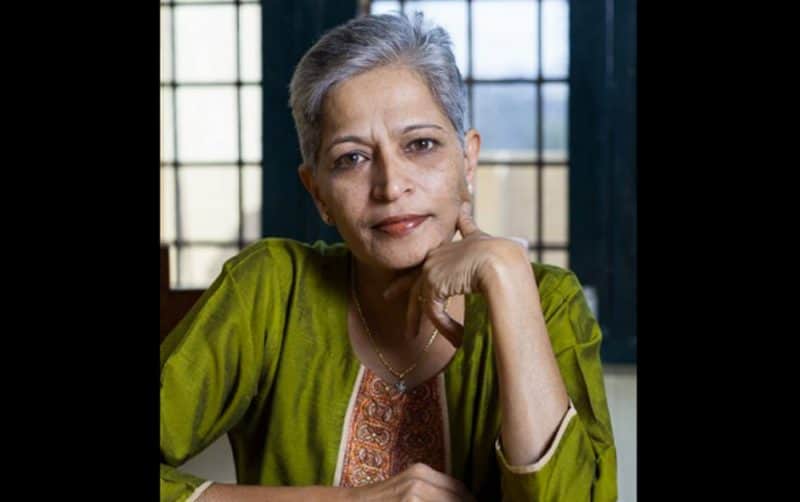By Saket Suman:
The week gone by marked the first death anniversary of braveheart Gauri Lankesh, whose murder shook the nation and thrust her in the limelight but all too late. The ringmasters of the well-planned murder as well as the actual offenders of the horrendous act remain at large, or yet-to-be-proven-guilty, but her passing has left a void in the lives of those who knew her closely, and those who discovered her thereafter in the pages she penned.
The brutal act continues to face widespread and vociferous condemnation. Notably, it is not an anti-establishment protest, far from anti-Bharatiya Janata Party (BJP) too — instead, it is the people’s appeal to the regime to serve them what the constitution guarantees. If anything, it is a protest against the forces attempting to curb free speech, and therefore the government — tasked as it is to uphold constitutional rights and beliefs — should, ideally, dedicate itself willfully to the cause.
While the Prime Minister Narendra Modi-led National Democratic Alliance (NDA) government has shown no concrete inclination to express its slightest displeasure, if at all, for such gruesome attacks, the pages of future history are forever maligned by other similar attacks that continue to surface even after Lankesh’s untimely passing.
The government may hide behind the veil of doing actual work than talking, but the fact remains that silence can sometimes be misinterpreted as indirect approval, further inciting violence and threats. Or so the events of recent past suggest. The government’s track record of upholding free speech is not sound either.
One vociferous statement, like the Prime Minister’s historic speech on the eve of November 8, 2016, announcing the demonetisation of high-value currency notes, would perhaps have given much more strength to the advocates of free speech than the sum total of all protests they attend.
The condemnation that followed the killings of three rational thinkers — M.M. Kalburgi, Govind Pansare and Narendra Dabholkar — which snowballed into the award wapsi protest in 2015, was met with constant blows along the way.
In one instance, actor and BJP parliamentarian Paresh Rawal directly provoked violence against writer-activist Arundhati Roy by saying that the Booker-winning novelist should be tied to the jeep instead of stone- pelters in the Kashmir Valley.
While, on the one hand, criticism of the army was opposed as threats to India’s sovereignty, on the other hand, there was not even a word of condemnation from the government. Rawal stuck to his stance even in interviews thereafter, a shock to many fans of his excellent work in cinema.
Since when did such provocative statements directly inciting violence become the accepted norm? And, by the way, since when did it become wrong to utter a word of criticism against the army?
And then the fateful day of September 5, 2017, arrived when Lankesh was murdered.
Her former husband Chidanand Rajghatta penned a book in her memory “Illiberal India: Gauri Lankesh and the Age of Unreason”, bringing to fore the rather obscured life of the veteran journalist-cum-activist. Adding a personal touch that only Rajghatta, who lived with Lankesh as a couple for five years, could, the book provides an insight into the firebrand personality that Lankesh was.
The running theme throughout its pages, however, remains — the void that has been created since she was slain.
But if she had not been the target of her assassins, she might well have lived an eventful life fighting for the causes that she did and, like many social activists do, die in oblivion. Her untimely death sparked public outrage.
However, those who lamented her death and called upon the government to punish the offenders became the target of vitriol and online trolls. The saga of making the unaccepted accepted that Rawal began, returned to mock Lankesh’s sacrifice as voices of dissent were, and are, publicly made fun of, ridiculed, called names and trolled.
Since when did it become wrong to condemn a killing? Since when did non-violent sermons become the norm in the country for whose freedom Gandhi dedicated his life to? And with that potent tool — ahimsa?
Lankesh may have died, but the cycle of events post her death points to the fact that, if anything, her murder has only immortalised her in the pages to be read, discussed and studied by generations to come. And the journey has already begun.
Spanning the length and breadth of the country, numerous seminars, literary forums and events of similar kind were, and are being held. Lankesh’s writings have been reproduced, translated and compiled in several anthologies by mainstream publishers in English as well as Indian Languages.
All of this suggest that Gauri Lankesh will have a legendary presence in the life of perhaps everybody growing up today. Books will, of course, be the primary medium.
(Saket Suman is a Principal Correspondent at IANS. The views expressed are personal. He can be contacted at saket.s@ians.in)

